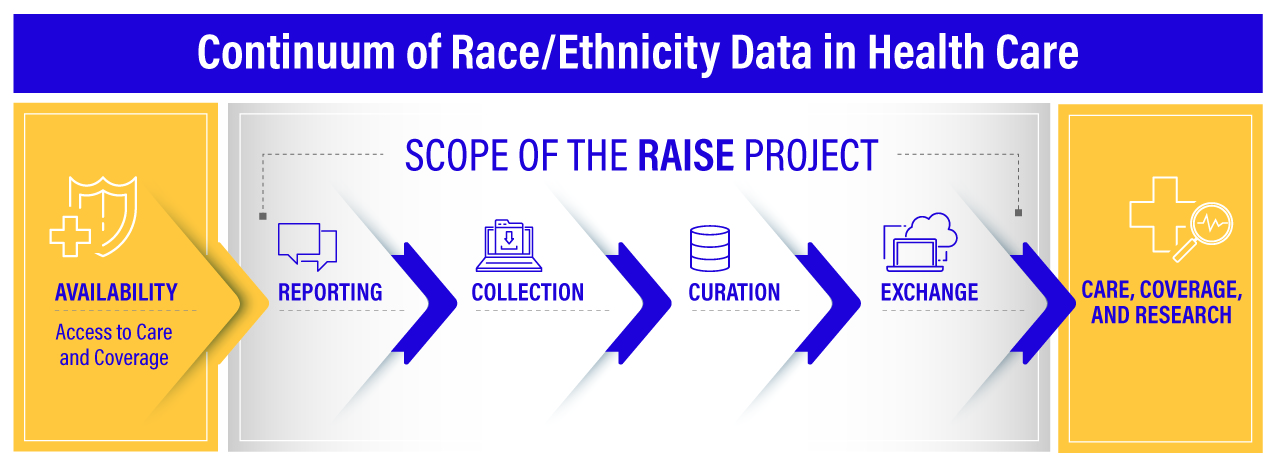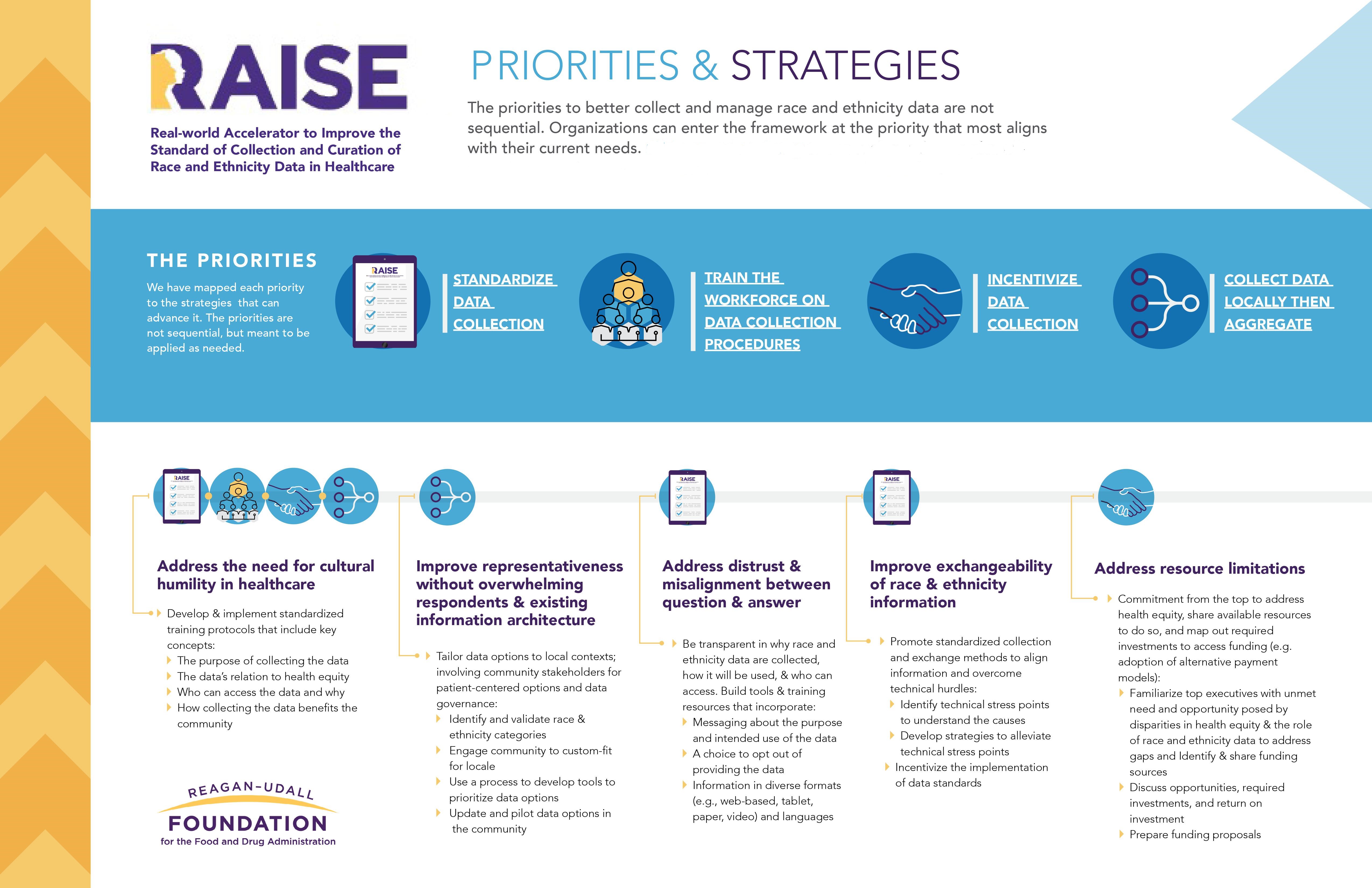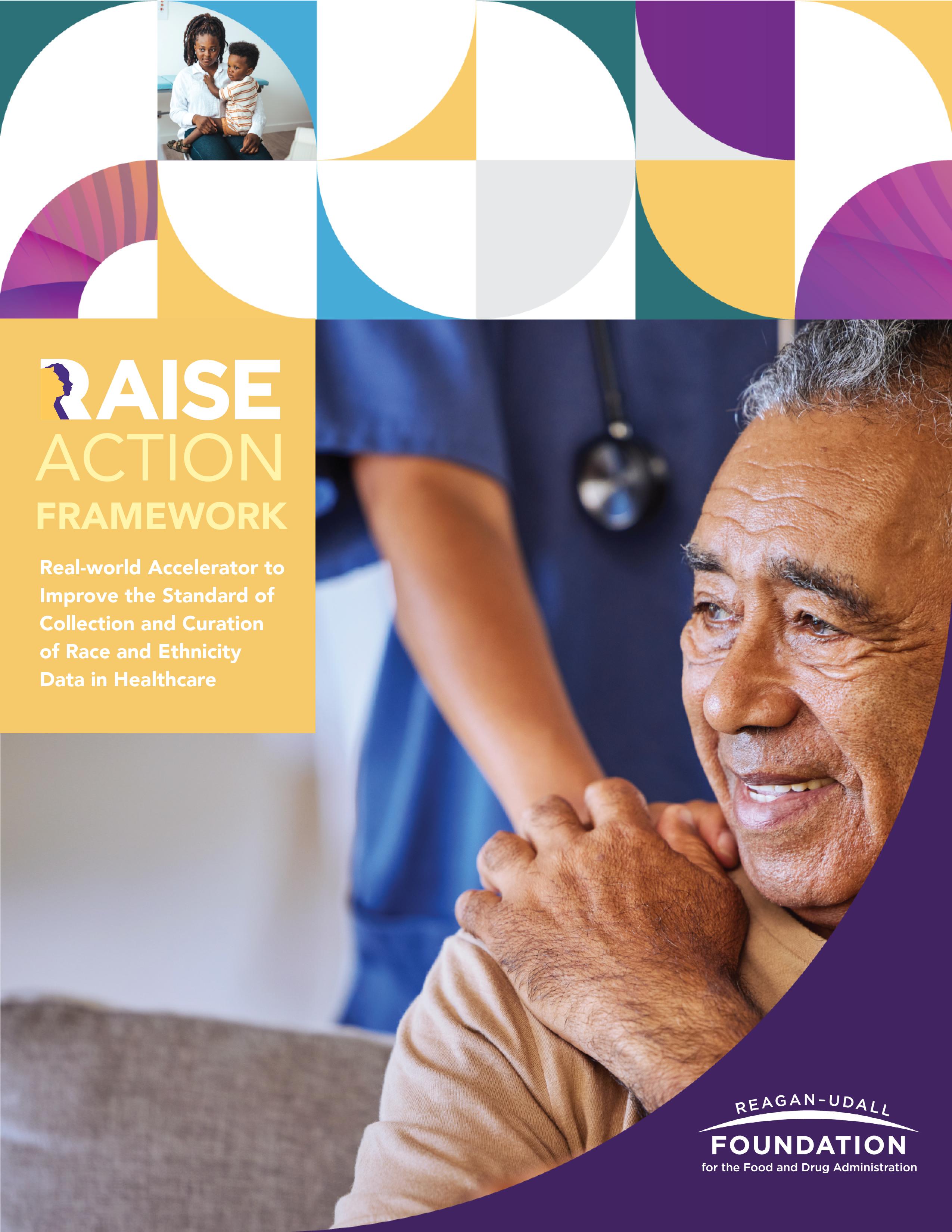
Incomplete and inconsistent capture of information about race and ethnicity in real-world data (RWD) limits a full understanding of the distribution, safety, and effectiveness of FDA-regulated products, which impacts the health of the public.
 While race and ethnicity represent only the tip of the iceberg, collecting and measuring race and ethnicity data is an important step toward the development of safe and effective medical products and effective healthcare for all patients – especially people of color. Race and ethnicity are closely linked to disparities in access to medical products, health care, and health outcomes.
While race and ethnicity represent only the tip of the iceberg, collecting and measuring race and ethnicity data is an important step toward the development of safe and effective medical products and effective healthcare for all patients – especially people of color. Race and ethnicity are closely linked to disparities in access to medical products, health care, and health outcomes.
Without this vital information, the health care industry has a limited ability to describe the real-world utilization, safety, quality, and effectiveness of medical products and patient care. Gathering this data in health care settings and in partnership with communities will help communities, health care providers, administrators, researchers, life sciences companies identify patterns and trends in medical product usage, health care, and downstream health outcomes across different populations in the U.S. and develop interventions and policies to improve health outcomes and reduce health disparities.
The Reagan-Udall Foundation for the FDA, in collaboration with FDA's Office of Minority Health and Health Equity, launched RAISE to elevate the capture and curation of race and ethnicity data in health care settings to ultimately improve the quality of health care and medical products.
New: RAISE Action Framework


RAISE facilitates opportunities to share, learn, and build capacity to identify and prioritize solutions to improve the inclusion of race and ethnicity data throughout the health care data continuum. Working with leaders across the health care ecosystem, RAISE launched a series of thoroughly researched and crafted workshops. Using a robust process of polling and review, the findings were summarized into this Action Framework to facilitate action toward improving the collection, curation, and exchange of race and ethnicity data. The Framework includes priorities that leaders can use to guide their efforts. Use this framework to engage colleagues in further dialogue to build an infrastructure for health
equity that considers the strengths and challenges of your organization and the communities you serve.
RAISE in Action
2023 Community Workshop Series
RAISE includes 11 community workshops from January – June 2023 covering topics that influence the continuum of race/ethnicity data in health care settings.
Through RAISE, the Reagan-Udall Foundation for the FDA:
• Convened a series of workshops with leaders across the health and health care ecosystem to create opportunities to share, learn, and build capacity to advance solutions; and
• Developed a multi-dimensional tool that will help prioritize strategies to improve the capture and curation of race and ethnicity data, based on the barriers and solutions discussed in these community meetings.
RAISE workshops are meant to encourage active conversation and information sharing among those actively working in academic, health care, patient advocacy, regulatory, research, and related sectors.
This project is supported by the Food and Drug Administration (FDA) Office of Minority Health and Health Equity of the U.S. Department of Health and Human Services (HHS) as part of a financial assistance award (FAIN) totaling $874,514 (100% funded by FDA OMHHE/HHS). The contents are those of the author(s) and do not necessarily represent the official views of nor an endorsement by FDA/HHS, or the U.S. Government.
Learn More
Learn more about the Foundation’s other research programs.


